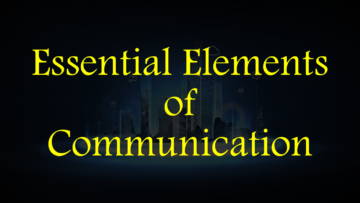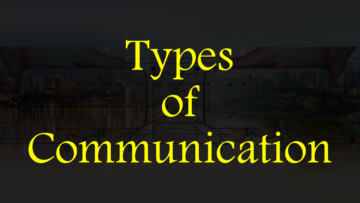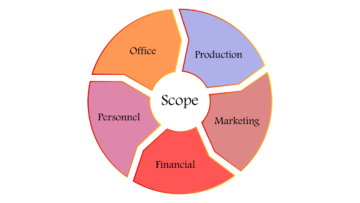Communication is a process of transferring information from one to another because various elements are involved in communication to transfer information and each element is interconnected with each other which completes the communication. If any element is missing the communication process will not be complete.
All elements of communication are needed to complete communication because communication is a group of elements. It involves various elements from initiating the communication to end the communication. Communication starts with the sender and ends with the receiver and includes creating information, sending information, receiving information, giving feedback on information, etc.
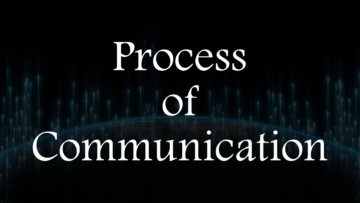
Table of Contents
Process of Communication
Following are the processes of communication:
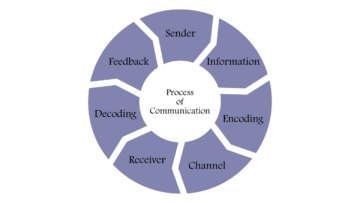
1. Sender:
The communication process starts with the sender because the sender initiates the communication. Sender means the one who initiates the communication, creates the information etc. The sender may be an individual or a group of individuals or both, depending on the nature of the communication.
2. Information:
Information is a second process of communication after the sender. information is created by the sender, and it may be thought, expression, emotion, fact, etc. Communication is used to transfer information, if there is no information then how will communication begin?
3. Encoding:
When the sender creates the information, they convert the information into words, symbols, gestures, etc. Because sender create information in their own mind, no one else can understand it unless the sender converts it. Converting information into understandable form is called encoding.
4. Channel:
The next process after encoding the information is to find the channel to transfer the information to the receiver. Various types of channels are available like self, telecom, post, electronic communication etc. Which type of communication channel to use for transferring information to the receiver depends entirely on the sender, nature of communication, and place of communication, etc.
5. Receiver:
When information is sent through any medium, it reaches the receiver when all the circumstances are right. receiver means the person who receives information from the sender or to whom the sender wants to send the message. Receiver can be an individual or a group of individuals or both, it depends on the sender, receiver, and the nature of communication, etc.
6. Decoding:
When the receiver receives information from the sender, the receiver decodes the information sent by the sender. Just as the sender converts the information into an understandable form from in his mind, similarly the receiver also puts the information in his mind from the understandable form.
7. Feedback:
When the receiver decodes the information sent by the sender the receiver responds to the information. Feedback of the receiver only shows how much the receiver has understood the information sent by the sender. Sometimes the sender makes errors in encoding and sometimes the receiver makes errors in decoding due to which the information is not exchanged properly.
Read Also:
QNA/FAQ
Q1. Why is the sender important to the communication process?
Ans: The sender is important in the communication process because without the sender communication does not start.
Q2. Does feedback help determine whether communication has been successful?
Ans: Yes, feedback helps to determine whether communication has been successful or not.
Q3. Why is the receiver important to the communication process?
Ans: Yes, receiver is important in the communication process because without the receiver to whom will the sender send the information.
Q4. Why is information decoded?
Ans: Information is decoded so that the receiver can understand the information.
Q5. Why is information encoded?
Ans: Information is encoded so that the sender can send the information to the receiver.
Q6. Write the process of communication.
Ans: Following are the processes of communication:
1. Sender
2. Information
3. Encoding
4. Channel
5. Receiver
6. Decoding
7. Feedback


